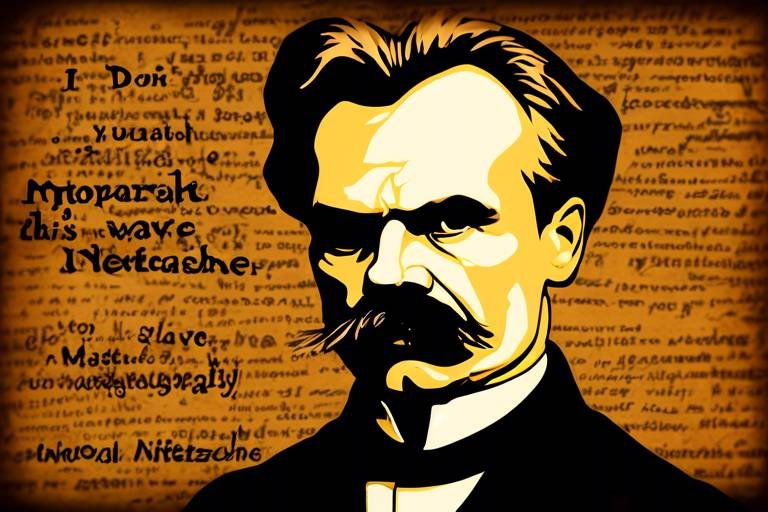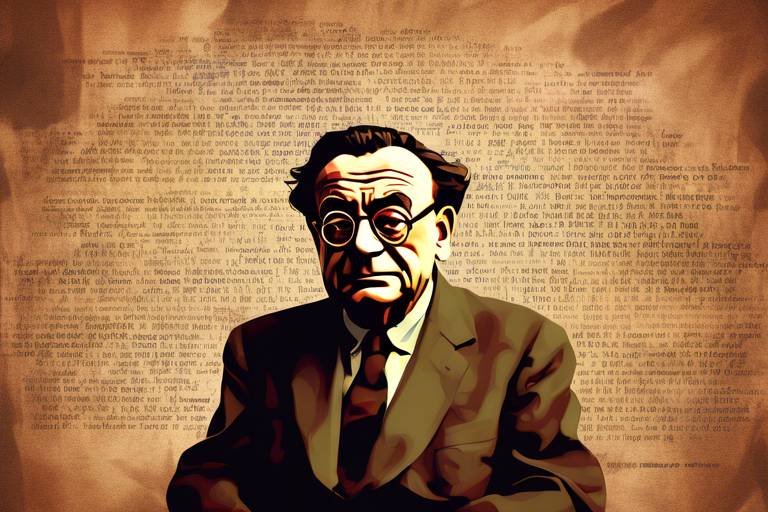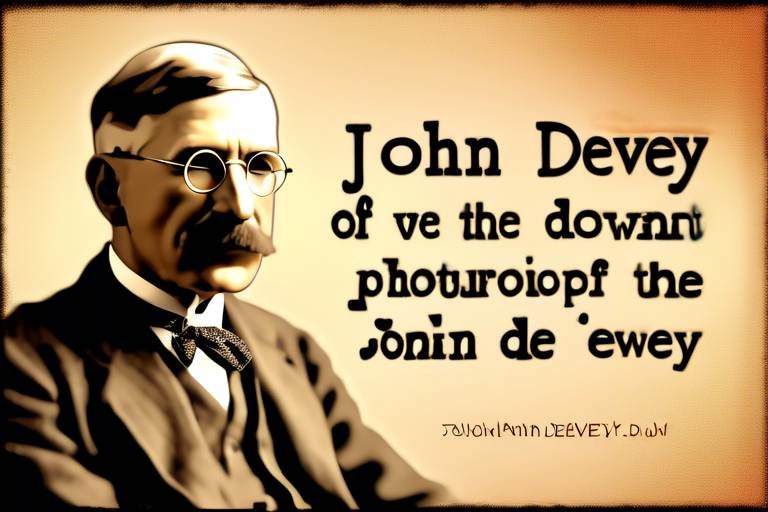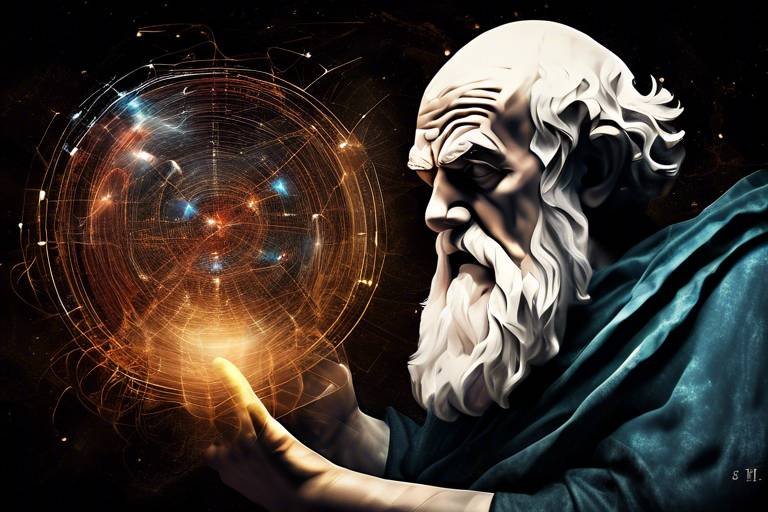Understanding Nietzsche’s Master-Slave Morality
Friedrich Nietzsche's philosophy is like a profound ocean, with deep currents that shape the way we perceive morality, power, and identity. At the heart of this philosophical sea lies the concept of master-slave morality, a framework that distinguishes between two opposing ethical systems. The master morality represents the values of the powerful, those who assert their will and create their own standards of what is good. In contrast, slave morality emerges from the perspective of the oppressed, who, feeling powerless, develop their own set of values that often emphasize humility, compassion, and meekness. Understanding these two moralities is crucial for grasping Nietzsche's critique of traditional ethical systems and their implications for contemporary society.
Nietzsche's exploration of these moralities invites us to reflect on our own values and the societal norms that shape them. Are we merely products of the prevailing moral systems, or do we have the power to redefine our values? This inquiry leads us to question not only the nature of morality but also the dynamics of power that underpin our social interactions. By dissecting the implications of master-slave morality, we can gain insight into the complex web of ethics that governs our lives today.
In modern contexts, the struggle between these two moralities can be observed in various aspects of life, from politics to personal relationships. The master morality champions the idea of strength and assertiveness, celebrating those who dare to challenge norms and push boundaries. On the other hand, the slave morality often manifests in narratives of victimhood and a collective sense of moral superiority among those who perceive themselves as oppressed. This dichotomy raises important questions about the values we hold dear and the ethical frameworks we choose to live by.
As we delve deeper into Nietzsche's thoughts, we will explore the historical context that birthed these ideas, the psychological implications of resentment, and the impact of victimhood on moral narratives. By engaging with these concepts, we can better understand the ongoing relevance of Nietzsche's master-slave morality in our quest for authenticity and ethical clarity in a world filled with competing values.
- What is master-slave morality?
Master-slave morality is a philosophical concept introduced by Friedrich Nietzsche that distinguishes between the values of the powerful (master) and the oppressed (slave). - How does master morality differ from slave morality?
Master morality values strength, creativity, and assertiveness, while slave morality emphasizes humility, compassion, and meekness. - Why is Nietzsche critical of modern morality?
Nietzsche critiques modern morality for promoting weakness and mediocrity, arguing that it stifles individuality and creativity. - What is the significance of the Übermensch?
The Übermensch represents an ideal individual who transcends conventional morality, embodying the values of master morality.

Defining Master-Slave Morality
Friedrich Nietzsche's concept of master-slave morality serves as a profound lens through which we can examine the intricacies of human ethics and social dynamics. At its core, this dichotomy distinguishes between two fundamental ethical frameworks: the values upheld by the masters, who are typically characterized by their strength, creativity, and assertiveness, and those of the slaves, who often embody values shaped by oppression and resentment. Understanding these contrasting moralities is crucial for grasping Nietzsche's critique of traditional morality and its implications for individual identity and societal structures.
Master morality is rooted in the idea that power and nobility define ethical behavior. Masters, in Nietzsche's view, create their own values based on their experiences and ambitions. They celebrate traits like courage, power, and excellence, viewing life as a canvas for personal expression and achievement. To them, morality is not about adhering to societal norms but rather about embracing one's instincts and desires, often leading to a more vibrant and dynamic existence.
On the flip side, slave morality arises as a reaction to the dominance of the masters. The oppressed, unable to assert their will in the same way, develop a moral framework that often emphasizes humility, compassion, and meekness. This shift is not merely a passive response; it is a powerful redefinition of values born from a sense of resentment towards the masters. The slaves begin to view their suffering as a moral high ground, fostering a sense of community and solidarity among those who share similar struggles.
It's essential to note that this distinction does not imply that one morality is inherently superior to the other. Rather, it highlights the complex interplay of power dynamics and ethics in shaping human behavior. Nietzsche's analysis encourages us to question the origins of our moral beliefs and consider how they influence our relationships and societal structures. By understanding master-slave morality, we can better navigate the ethical landscapes of our own lives and the world around us.
In essence, the master-slave morality framework invites us to reflect on our values and the sources from which they arise. Are we, in our own lives, more aligned with the assertive, value-creating spirit of the master, or do we find ourselves influenced by the reactive, value-defining nature of the slave? This inquiry not only deepens our understanding of Nietzsche's philosophy but also challenges us to consider the broader implications of our ethical choices in contemporary society.
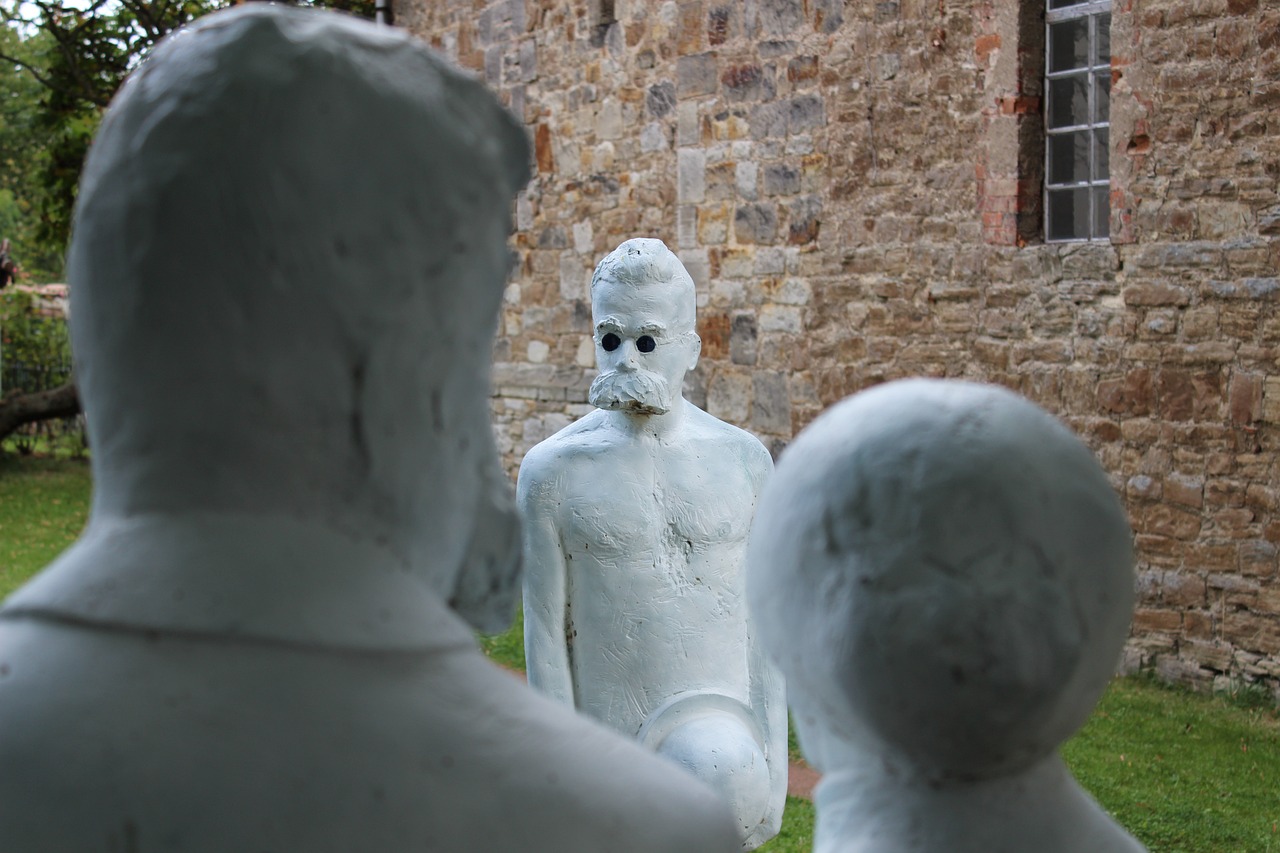
The Historical Context
To truly grasp Nietzsche's concept of master-slave morality, it's essential to understand the historical backdrop that shaped his ideas. Nietzsche lived during the late 19th century, a time marked by dramatic social, political, and philosophical transformations. The Enlightenment had paved the way for individualism and rational thought, challenging traditional structures of authority. This era saw the rise of democratic ideals and the questioning of established religious and moral norms, setting the stage for Nietzsche's radical critique of morality.
In this tumultuous climate, Nietzsche observed the growing influence of the masses and the subsequent shift in values. The decline of monarchies and the weakening of religious institutions led to a new social order where the voices of the oppressed began to resonate. These changes were not merely political; they were deeply psychological, as individuals grappled with their identities in a rapidly evolving world. Nietzsche's insights into power dynamics emerged from witnessing how these shifts affected personal and societal values.
One of the most significant developments during this period was the rise of industrialization. As societies transitioned from agrarian economies to industrial powerhouses, the class structure evolved. The working class became increasingly aware of their exploitation, leading to a sense of collective identity among the oppressed. This newfound awareness birthed a moral framework that emphasized the importance of victimhood and the need for social justice, which Nietzsche critiqued as a manifestation of slave morality.
In addition to industrialization, the philosophical landscape was shifting. Thinkers like Karl Marx and Friedrich Engels were articulating ideas about class struggle and the role of the proletariat. Nietzsche, however, diverged from these perspectives. While Marx focused on the economic dimensions of oppression, Nietzsche examined the psychological implications of power dynamics. He believed that the emergence of slave morality was a reaction to the dominance of the powerful, where the oppressed created their own values as a means of coping with their subjugation.
To illustrate the contrast between master and slave morality, consider the following table:
| Aspect | Master Morality | Slave Morality |
|---|---|---|
| Source of Values | From strength and power | From weakness and oppression |
| View of Life | Affirmative, life-affirming | Resentful, life-denying |
| Ethical Focus | Creativity and assertiveness | Compassion and humility |
| Perspective on Suffering | Embraced as a path to strength | Seen as a reason for moral superiority |
In summary, the historical context of Nietzsche's master-slave morality is rooted in a period of profound change. The rise of industrial society, the questioning of authority, and the emergence of new philosophical ideas all played a role in shaping his thoughts. By understanding this backdrop, we can better appreciate the complexities of his critique and how it still resonates in our contemporary discussions about ethics and power dynamics.
- What is master-slave morality? Master-slave morality refers to Nietzsche's distinction between the values of the powerful (master) and the oppressed (slave), highlighting how these different perspectives shape ethical frameworks.
- How did historical events influence Nietzsche's ideas? Nietzsche's ideas were influenced by the social changes of the late 19th century, including industrialization, the rise of democratic ideals, and the questioning of traditional authority.
- What are the implications of slave morality? Slave morality emphasizes values such as compassion and humility, often arising from feelings of resentment among the oppressed, which Nietzsche critiqued as life-denying.

The Rise of Slave Morality
The concept of slave morality emerges from a fascinating psychological landscape, one that reflects the struggles of the oppressed against their powerful counterparts. As Nietzsche articulated, this morality is not merely a reaction; it is a complex system of values that arose from the depths of resentment and the desire for self-preservation. In essence, slave morality represents a profound transformation in the way individuals perceive themselves and their world, particularly in the face of oppression.
Historically, as societies evolved, the dominant class—the "masters"—embodied values such as strength, nobility, and assertiveness. However, those who were marginalized began to cultivate a different set of values, which we now refer to as slave morality. This shift was not just about survival; it was a reclamation of identity and power through the construction of a moral framework that championed humility, meekness, and compassion. In this way, slave morality became a form of resistance, a psychological toolkit for the oppressed to navigate their harsh realities.
One of the most significant aspects of this development is the role of resentment. As those who were subjugated experienced feelings of inferiority, they began to create a moral narrative that justified their suffering and redefined their circumstances. This narrative often involved a victimhood complex, where the oppressed viewed themselves as morally superior due to their suffering. This perspective not only allowed them to cope with their situation but also provided a sense of moral high ground over their oppressors.
Furthermore, slave morality often manifests through various cultural expressions, including religion, art, and social movements. For instance, many religious teachings emphasize the virtues of patience, forgiveness, and love for one’s enemies—qualities that resonate deeply with the experiences of the oppressed. These values stand in stark contrast to the assertive, often ruthless traits glorified by master morality. In this way, slave morality becomes a powerful social force, shaping communal identities and ethical standards.
To illustrate the differences between master and slave morality, consider the following table:
| Aspect | Master Morality | Slave Morality |
|---|---|---|
| Values | Strength, power, nobility | Humility, compassion, meekness |
| Worldview | Affirmation of life | Reactivity to oppression |
| Ethical Focus | Individual excellence | Collective well-being |
| Psychological Orientation | Confidence, assertiveness | Resentment, victimhood |
In conclusion, the rise of slave morality is a testament to the resilience of the human spirit. It highlights how individuals can adapt and create meaning even in the face of overwhelming adversity. By developing a unique moral framework, the oppressed not only challenge their circumstances but also pave the way for future generations to redefine power and ethics in their own terms. As we reflect on this evolution, we may find that the lessons of slave morality are more relevant today than ever, encouraging us to question our own values and the societal structures that shape them.
- What is the main difference between master and slave morality? Master morality values strength and assertiveness, while slave morality emphasizes humility and compassion.
- How does resentment play a role in slave morality? Resentment drives the oppressed to create a moral framework that justifies their suffering and redefines their identity.
- Can slave morality be seen as a form of empowerment? Yes, it allows the oppressed to reclaim their identity and moral standing in society.
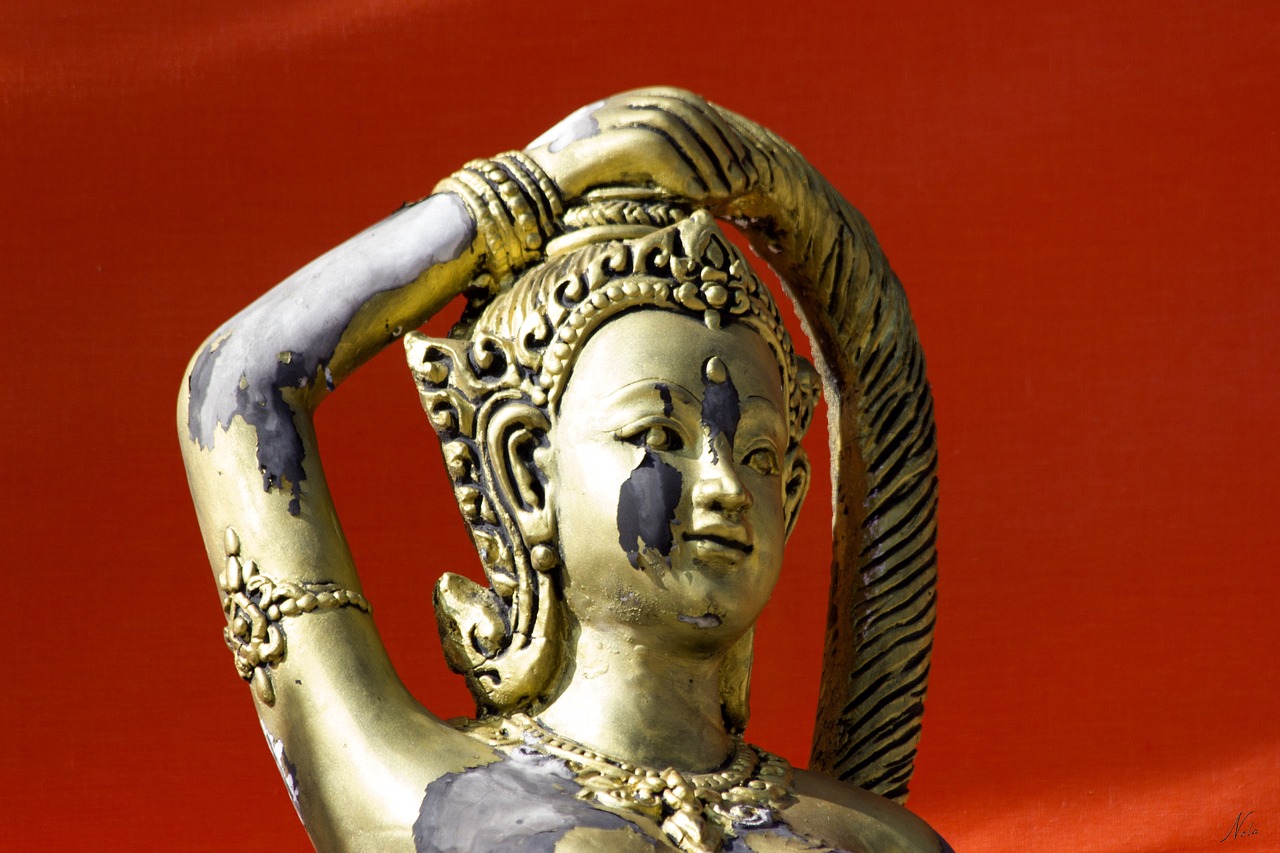
Resentment and Its Role
Resentment is a powerful emotion that plays a pivotal role in the development of slave morality. It arises from the experience of oppression and subjugation, serving as a catalyst for the creation of a moral framework that seeks to redefine values in opposition to those of the masters. Imagine a scenario where a group of individuals is consistently belittled and marginalized; over time, this constant pressure can lead to a simmering resentment that transforms into a collective identity. This shift is not merely a reaction but a profound reconfiguration of ethical beliefs and social dynamics.
In Nietzsche's view, resentment is not just a passive feeling; it actively shapes the moral landscape of societies. The oppressed often channel their feelings of anger and frustration into a moral narrative that valorizes their suffering and victimhood. This narrative allows them to establish a sense of worth and identity that stands in stark contrast to the values of the powerful. The oppressed create a moral code that emphasizes qualities like humility, compassion, and empathy, which they see as virtuous in opposition to the perceived arrogance and brutality of the masters.
Furthermore, resentment can lead to a cycle where the oppressed, fueled by their feelings, start to view the world through a lens of victimhood. This perspective can create a sense of moral superiority, as they believe that their suffering grants them a unique insight into the human condition. They may argue that their values are inherently more noble than those of the masters, who are seen as morally bankrupt due to their pursuit of power and dominance.
However, this transformation is not without its complications. While resentment can empower the oppressed, it can also entrap them in a perpetual state of grievance. This emotional state can hinder their ability to move beyond victimhood, as they may become consumed by their anger and resentment, preventing genuine progress and healing. In this sense, resentment can be both a source of strength and a barrier to personal and collective growth.
To illustrate the complex relationship between resentment and morality, consider the following table that contrasts the characteristics of master and slave morality:
| Aspect | Master Morality | Slave Morality |
|---|---|---|
| Values | Strength, power, creativity | Humility, compassion, empathy |
| Emotional Basis | Confidence, assertiveness | Resentment, victimhood |
| Worldview | Affirmation of life | Reaction against oppression |
| Ethical Framework | Individualistic, self-affirming | Collectivist, focused on the common good |
In conclusion, resentment is a crucial element in the formation of slave morality, shaping not only personal identities but also broader societal structures. It serves as a double-edged sword, offering both a means of resistance against oppression and a potential trap that can keep individuals and communities mired in a cycle of grievance. Understanding this dynamic is essential for grasping Nietzsche’s critique of morality and the complexities of human behavior.
- What is master-slave morality? Master-slave morality is a philosophical concept introduced by Friedrich Nietzsche that distinguishes between the values of the powerful (masters) and the oppressed (slaves).
- How does resentment influence morality? Resentment can lead the oppressed to develop their own moral framework that emphasizes values like humility and empathy, often in reaction to the dominance of the powerful.
- Can resentment be both positive and negative? Yes, while resentment can empower individuals to resist oppression, it can also trap them in a cycle of grievance that hinders personal growth.
- What are the implications of Nietzsche's ideas today? Nietzsche's concepts challenge us to reflect on our own values and the power dynamics that shape our ethical perspectives in contemporary society.

Victimhood and Morality
Victimhood, in the context of Nietzsche's master-slave morality, plays a pivotal role in shaping ethical narratives and societal structures. At its core, the concept of victimhood is not merely about suffering or oppression; it transforms into a powerful identity that can dictate moral values and social interactions. When individuals or groups perceive themselves as victims, they often develop a moral framework that emphasizes their experiences of suffering, leading to a unique set of values that contrast sharply with those of the 'masters.'
In Nietzsche's view, this shift is significant because it allows the oppressed to create a moral narrative that legitimizes their position and critiques the dominant values of the powerful. Victimhood fosters a sense of solidarity among those who share similar experiences, creating a collective identity that can be both empowering and limiting. While it can unite people against perceived injustices, it can also lead to a culture of blame and resentment. This duality raises questions about the ethical implications of adopting a victimhood mentality:
- Does embracing victimhood empower individuals or bind them to their suffering?
- How does the narrative of victimhood influence societal values and ethical standards?
- Can the focus on victimhood lead to a sense of moral superiority, and if so, what are its consequences?
Moreover, the moral framework that arises from victimhood often emphasizes compassion, empathy, and a desire for justice. While these values are important, they can also perpetuate a cycle of dependency and resentment. For instance, when individuals define themselves primarily through their victim status, they may inadvertently reinforce the power dynamics they seek to dismantle. This creates a paradox: the very identity that should empower them can also limit their potential for growth and agency.
Nietzsche challenges us to consider whether this moral perspective truly serves the interests of the oppressed or merely perpetuates their subjugation. He posits that a morality rooted in victimhood can lead to a stagnation of personal and societal development. Instead of striving for greatness and self-overcoming, individuals may become trapped in a narrative that prioritizes their suffering over their potential. This is where Nietzsche's critique becomes particularly relevant, as he calls for a re-evaluation of how we understand morality and identity in the context of victimhood.
In conclusion, while victimhood can serve as a rallying point for social justice, it also demands a critical examination of its implications for morality. Are we fostering a culture that empowers individuals to transcend their circumstances, or are we inadvertently reinforcing the very structures of power and oppression we seek to challenge? Understanding the relationship between victimhood and morality is crucial for navigating the complexities of modern ethical discourse.

The Implications of Master Morality
The concept of master morality is not just a philosophical abstraction; it has profound implications for how individuals and societies operate. At its core, master morality celebrates traits such as strength, creativity, and assertiveness. These qualities are not merely admired; they are seen as essential for achieving greatness and personal fulfillment. This perspective fosters an environment where individuals are encouraged to embrace their instincts and pursue their passions without the constraints of traditional moral judgments.
In societies that embrace master morality, there is often a shift in cultural values. For example, the pursuit of excellence and the recognition of individual achievement become paramount. People are motivated to strive for their highest potential, which can lead to significant advancements in various fields, including art, science, and technology. However, this drive for personal mastery can also create a stark divide between those who embody these traits and those who do not, often leading to a hierarchical social structure.
Moreover, master morality encourages a sense of personal responsibility. Individuals who operate under this framework are less likely to blame external factors for their failures. Instead, they view challenges as opportunities for growth. This mindset can foster resilience, as people learn to navigate the complexities of life with a proactive attitude. However, it can also lead to a lack of empathy for those who struggle, as the emphasis on personal achievement may overshadow the importance of community and support.
Interestingly, master morality can also be seen as a double-edged sword. While it promotes individualism and self-assertion, it can also lead to a form of elitism. Those who adhere to master morality may develop a disdain for the values of the oppressed, viewing them as weak or inferior. This can create a culture of exclusion, where the achievements of the few overshadow the needs and struggles of the many. Consequently, the implications of master morality extend beyond individual behavior; they influence societal norms and power dynamics.
In a practical sense, the implications of master morality can be observed in various domains, such as business, politics, and education. For instance, in the corporate world, companies that prioritize innovation and assertiveness often outperform their competitors. They attract individuals who are ambitious and willing to take risks, fostering a culture of excellence. However, this can also lead to cutthroat environments where collaboration is sacrificed for personal gain.
To illustrate the implications of master morality, consider the following table that outlines its key characteristics and their potential effects on society:
| Characteristic | Positive Effects | Negative Effects |
|---|---|---|
| Strength | Encourages resilience and determination | Can foster aggression and dominance |
| Creativity | Drives innovation and progress | May lead to a disregard for tradition |
| Assertiveness | Promotes self-advocacy and confidence | Can result in insensitivity to others' needs |
Ultimately, the implications of master morality challenge us to reflect on our own values and behaviors. Are we cultivating an environment that fosters excellence while remaining inclusive? How do we balance the pursuit of personal mastery with the need for community and compassion? These questions are crucial as we navigate the complexities of modern life, reminding us that while the ideals of master morality can inspire greatness, they also demand a careful consideration of their broader impact.
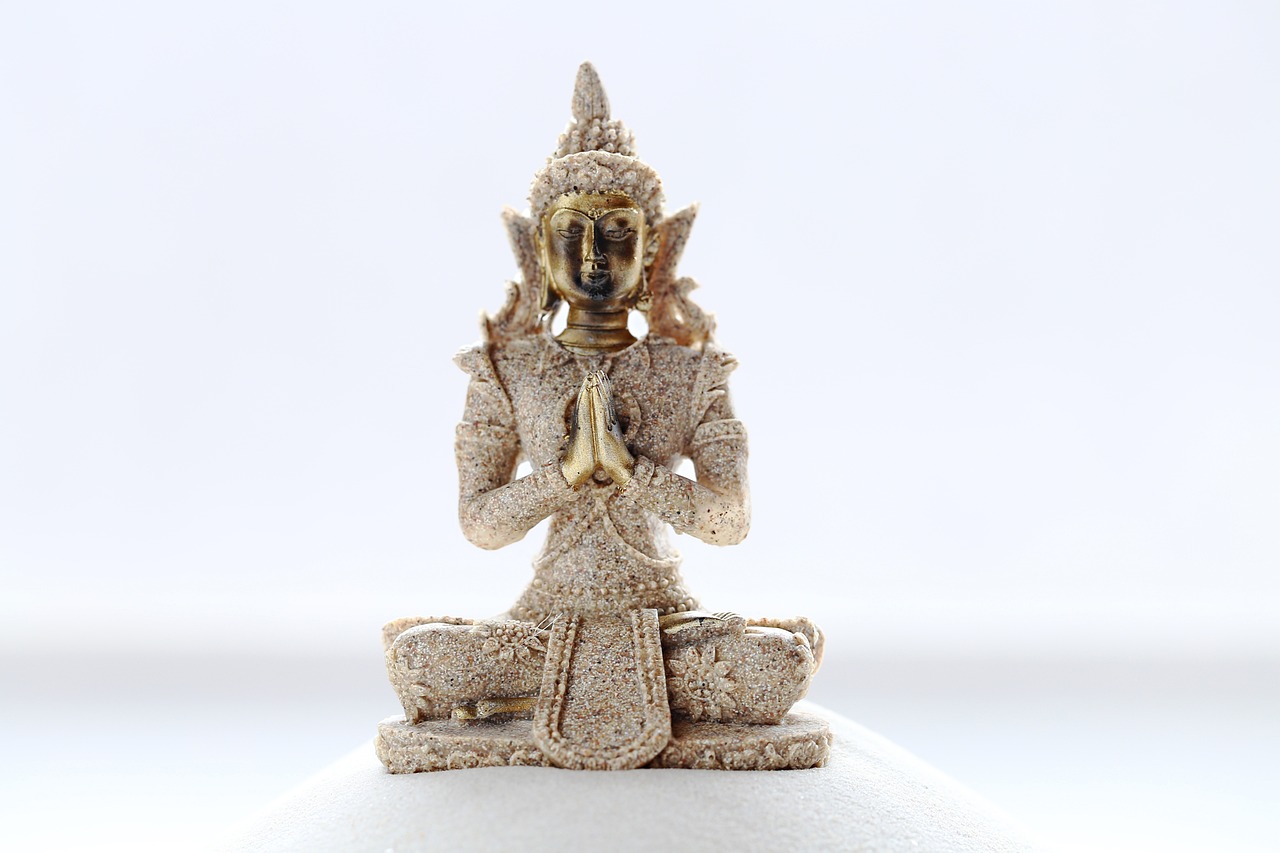
Nietzsche's Critique of Modern Morality
Friedrich Nietzsche, a philosopher known for his provocative ideas, had a lot to say about modern morality. His critique centers around the idea that contemporary moral systems promote weakness and mediocrity rather than strength and excellence. He believed that these moral frameworks arise from a sense of resentment among the oppressed, who, feeling powerless, create ethical standards that favor their own condition. This is where Nietzsche's distinction between master and slave morality becomes crucial. He argued that modern morality often glorifies traits such as humility, meekness, and self-denial, which he viewed as a betrayal of the human spirit.
Nietzsche's disdain for modern morality can be encapsulated in a few key points:
- Promotion of Weakness: He felt that modern moral systems, like Christianity, encourage individuals to suppress their natural instincts and desires, leading to a culture that values passivity over action.
- Conformity Over Individuality: Nietzsche criticized how modern morality pushes people towards conformity, stifling creativity and individuality in favor of a bland, collective ethos.
- Slave Morality's Dominance: He argued that the values of the oppressed have overshadowed those of the powerful, leading to a societal structure that rewards mediocrity instead of excellence.
In Nietzsche's view, the modern moral landscape is akin to a stifling fog that obscures the vibrant colors of human potential. Instead of celebrating the strong, the creative, and the assertive, society often punishes these traits in favor of a more docile existence. He believed that this trend could lead to a societal stagnation where innovation and greatness are sacrificed for the sake of maintaining a false sense of equality.
This critique is not just an academic exercise; it has profound implications for how we understand ethics today. Nietzsche urged individuals to question the moral values imposed upon them and to seek their own path, one that embraces their inherent strengths and desires. He saw the potential for a new kind of individual, one who could rise above conventional morality and embody the ideals of the Übermensch.
Moreover, Nietzsche’s critique extends to the way modern morality shapes our societal structures. Consider how political correctness and the emphasis on victimhood can create a culture where individuals are often afraid to express their true selves. This, he argued, leads to a cycle of mediocrity where everyone is encouraged to play it safe rather than strive for greatness. The very essence of what it means to be human—our drive for power, creativity, and excellence—is dulled in this moral fog.
In conclusion, Nietzsche's critique of modern morality challenges us to reflect on our values and the systems that govern our lives. Are we allowing the ideals of the oppressed to dictate our moral compass? Or can we find the courage to embrace a more robust and dynamic ethical framework that celebrates strength and individuality? By engaging with these questions, we can begin to carve out a more authentic existence that honors the full spectrum of human potential.
- What is Nietzsche's master-slave morality? Master-slave morality is a concept that distinguishes between the values of the powerful (master) and the oppressed (slave), highlighting the ethical frameworks that emerge from these different perspectives.
- Why does Nietzsche criticize modern morality? Nietzsche criticizes modern morality for promoting weakness, conformity, and mediocrity, arguing that it suppresses human potential and creativity.
- What is the Übermensch? The Übermensch, or "Overman," is an idealized individual in Nietzsche's philosophy who transcends conventional morality and embodies strength, creativity, and assertiveness.

The Role of the Übermensch
The concept of the Übermensch, often translated as "Overman" or "Superman," is a cornerstone of Friedrich Nietzsche's philosophy. This ideal figure embodies the ultimate expression of human potential, transcending the limitations imposed by traditional morality. But what does it really mean to be an Übermensch? In essence, the Übermensch represents a radical departure from the conventional values of society, embracing strength, creativity, and individuality. Rather than adhering to the moral codes laid down by the slave morality, the Übermensch creates their own values, asserting their will to power in a world often defined by mediocrity and conformity.
Nietzsche posited that the Übermensch is not merely a figure of physical strength or dominance; rather, they embody a profound psychological and spiritual evolution. This character is marked by the ability to rise above societal norms and expectations, crafting a life that is authentically their own. Imagine a sculptor chipping away at a block of marble, revealing a masterpiece hidden within. The Übermensch is that sculptor, constantly refining and redefining themselves, unafraid to challenge the status quo.
One of the most significant aspects of the Übermensch is their relationship with morality. Unlike those who subscribe to slave morality, which often emphasizes humility, pity, and self-denial, the Übermensch embraces a morality rooted in life-affirmation and individualism. This does not mean a rejection of all ethical considerations; rather, it signifies a re-evaluation of what it means to live a good life. The Übermensch recognizes that traditional moral frameworks can often stifle human potential, leading to a culture of weakness where mediocrity is celebrated over greatness.
To further illustrate the characteristics of the Übermensch, consider the following table:
| Characteristic | Description |
|---|---|
| Creativity | The ability to generate new ideas and express oneself uniquely. |
| Strength | Both physical and mental resilience, allowing one to overcome obstacles. |
| Individualism | A commitment to personal values and beliefs, independent of societal pressures. |
| Will to Power | A drive to assert one's influence and creativity in the world. |
In contemporary society, the idea of the Übermensch can serve as a powerful metaphor for personal growth and self-actualization. It challenges us to ask ourselves: Are we living authentically? Are we allowing societal norms to dictate our values and choices? Nietzsche encourages us to embrace our inner Übermensch, to break free from the shackles of conformity and mediocrity, and to strive for greatness in our own unique ways.
Ultimately, the role of the Übermensch is not just a philosophical concept; it is a call to action. It invites each of us to reflect on our lives, to question the moral frameworks we inhabit, and to take charge of our destinies. By doing so, we can contribute to a culture that celebrates individuality, creativity, and strength—qualities that are essential for a vibrant and dynamic society.
- What does Übermensch mean? The term refers to an ideal individual who transcends conventional morality and creates their own values.
- How does the Übermensch relate to master-slave morality? The Übermensch embodies master morality, promoting strength and creativity, while rejecting the values of slave morality, which emphasize weakness and conformity.
- Can anyone become an Übermensch? Nietzsche believed that anyone has the potential to strive for the qualities of the Übermensch by embracing individuality and rejecting societal norms.

Master-Slave Dynamics in Society
When we dive into the master-slave dynamics in society, we uncover layers of complexity that influence our daily lives. These dynamics are not merely historical or philosophical concepts; they are alive and well in our contemporary world, shaping everything from social hierarchies to individual identities. Imagine walking through a bustling city where the roles of master and slave play out in various forms—corporate environments, political arenas, and even personal relationships. It's a dance of power and submission, echoing Nietzsche's observations about human behavior.
At the core of these dynamics lies the struggle for power and recognition. In many cases, the 'masters' are those who hold positions of authority, whether it be in the workplace or the political sphere. They embody traits such as confidence, assertiveness, and a drive for achievement. Conversely, the 'slaves' often find themselves in subordinate roles, shaped by societal expectations and historical context. This relationship can create a cycle where the oppressed develop a unique set of values that challenge the status quo, leading to a complex interplay of resentment and aspiration.
Consider the modern workplace as a microcosm of these dynamics. Employees may feel trapped in a system that rewards conformity and mediocrity, while those in leadership positions often operate under the belief that strength and decisiveness are the keys to success. This can lead to a culture where innovation takes a back seat to maintaining the existing power structures. The result? A workforce that feels undervalued and a leadership that struggles to inspire genuine loyalty and creativity. It's a toxic cycle that echoes Nietzsche's critique of traditional morality, where the values of the powerful overshadow the potential contributions of the oppressed.
Moreover, the dynamics of master and slave extend beyond individual relationships into broader societal structures. For instance, in discussions about class struggles, we can see how economic disparity creates a modern form of slavery, where the lower classes are often viewed as less valuable. This perception can lead to policies that reinforce these inequalities, making it challenging for individuals to transcend their circumstances. The psychological implications are profound; feelings of victimhood can permeate the collective consciousness of marginalized groups, shaping their moral narratives and reinforcing a cycle of despair.
In this context, it's essential to recognize that the master-slave dynamic is not static. It evolves, influenced by cultural shifts and societal changes. For example, the rise of social media has given a voice to those who traditionally have been marginalized, allowing them to challenge the dominant narratives. This shift can be seen as a form of resistance against the master-slave dichotomy, where individuals reclaim their power and redefine their identities outside the constraints imposed by traditional morality.
In conclusion, understanding the master-slave dynamics in society is crucial for grasping the ongoing struggles for power and identity. As we navigate our modern world, we must question how these dynamics influence our values and interactions. Are we perpetuating systems of oppression, or are we actively working towards a more equitable society? The answers to these questions can guide us in our quest for personal and collective growth.
- What is master-slave morality? Master-slave morality is a concept introduced by Friedrich Nietzsche that distinguishes between the values of the powerful (masters) and the oppressed (slaves).
- How does master-slave morality manifest in modern society? It manifests through power dynamics in various social structures, including workplaces, politics, and cultural narratives.
- What role does resentment play in slave morality? Resentment is a key element that shapes ethical perspectives and social dynamics among the oppressed, influencing their moral values.
- Can the master-slave dynamic change over time? Yes, these dynamics are not static and can evolve with cultural shifts and societal changes, particularly through movements that empower marginalized voices.
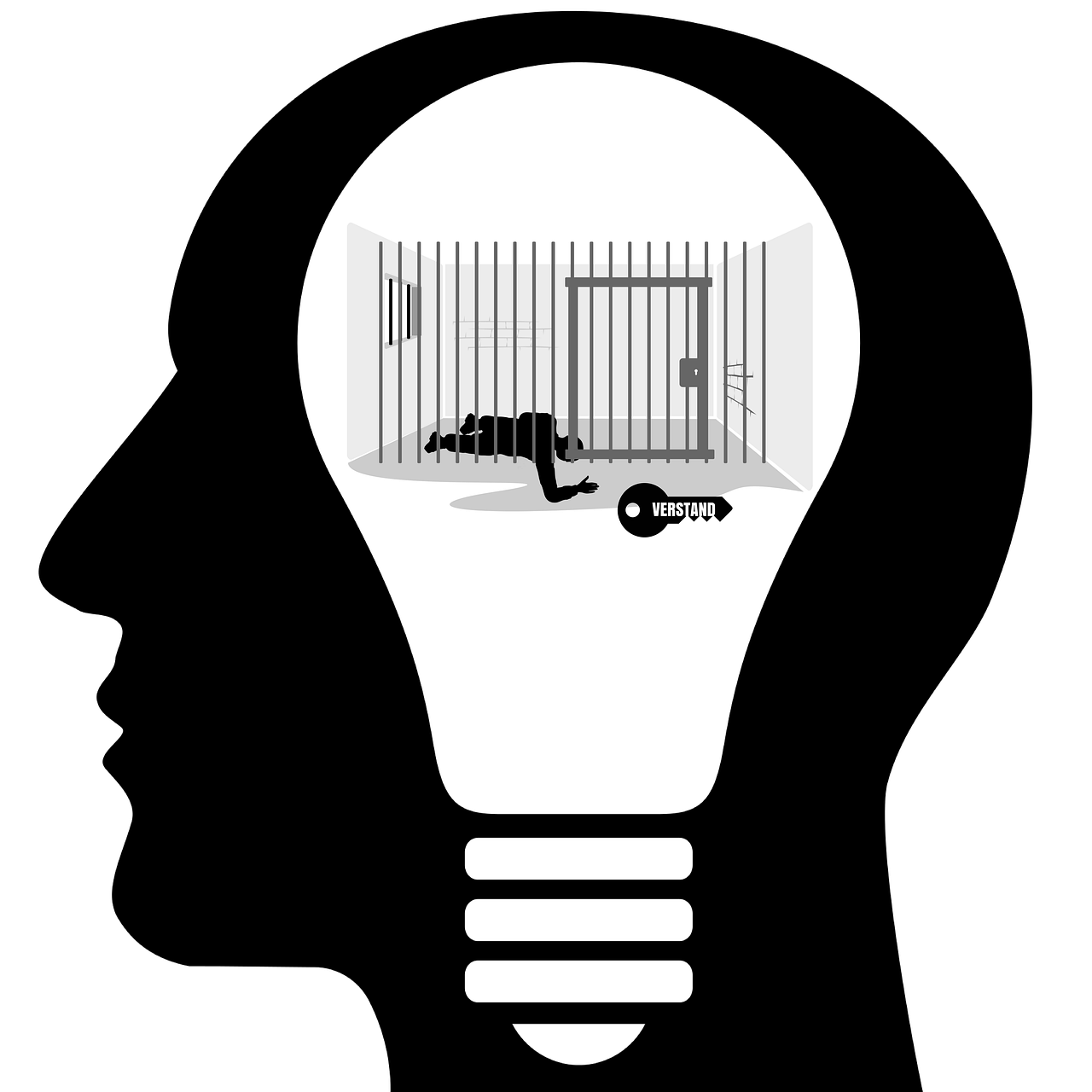
Conclusion and Reflection
In wrapping up our exploration of Nietzsche’s master-slave morality, it’s essential to reflect on the profound implications this concept holds for our contemporary lives. Nietzsche challenges us to examine the roots of our moral beliefs and to question whether they stem from genuine conviction or mere societal conditioning. The distinction between master and slave morality is not just a theoretical framework; it’s a lens through which we can analyze our own values and behaviors. Are we, as individuals, embracing the strength and creativity associated with master morality, or are we, perhaps subconsciously, adopting the victimhood narrative that often accompanies slave morality?
Consider how these moral frameworks play out in various aspects of modern life. In the workplace, for instance, do we celebrate assertiveness and innovation, or do we reward conformity and mediocrity? In our personal relationships, do we empower ourselves and others to express their individuality, or do we succumb to the pressures of societal expectations? These questions compel us to engage in a deeper self-reflection about the ethics we uphold and the identities we construct.
Moreover, the relevance of Nietzsche’s thought extends beyond individual introspection. It invites us to scrutinize the broader societal structures that perpetuate power dynamics. For instance, the ongoing struggles for social justice and equality can be viewed through the lens of master-slave morality. Are we fostering an environment that encourages the flourishing of the Übermensch—those who create and innovate—or are we reinforcing systems that perpetuate victimhood and dependency?
As we navigate the complexities of modern morality, it’s crucial to recognize that Nietzsche’s critique is not merely a rejection of traditional values but a call to transcend them. He urges us to rise above the dichotomy of master and slave, to cultivate a moral framework that celebrates human potential in all its forms. In doing so, we can begin to forge a path toward a more authentic existence, one that values strength, creativity, and individuality.
- What is master-slave morality? Master-slave morality is a concept introduced by Friedrich Nietzsche that distinguishes between the ethical values of the powerful (masters) and those of the oppressed (slaves).
- How does master-slave morality apply to modern society? It helps us understand contemporary power dynamics, social justice movements, and the moral narratives that shape our identities and interactions.
- What is the significance of the Übermensch? The Übermensch represents an ideal individual who transcends conventional morality, embodying strength, creativity, and assertiveness.
- How can I apply Nietzsche's ideas to my life? By questioning your own moral beliefs, embracing individuality, and striving for personal growth, you can begin to align with the values of master morality.
Frequently Asked Questions
- What is master-slave morality?
Master-slave morality is a concept introduced by Friedrich Nietzsche that distinguishes between two ethical frameworks: the values upheld by the powerful (the masters) and those of the oppressed (the slaves). The masters embody strength, creativity, and assertiveness, while the slaves often develop their own moral values in response to their oppression, focusing on qualities like humility and compassion.
- How did historical context influence Nietzsche's ideas?
Nietzsche's ideas emerged during a time of significant social upheaval, where traditional power structures were being challenged. This historical backdrop shaped his critique of morality, as he observed how societal changes influenced human behavior and ethical standards. The rise of democratic ideals and the questioning of authority played a crucial role in the development of his thoughts on power dynamics.
- What role does resentment play in slave morality?
Resentment is a fundamental aspect of slave morality. It arises from the feelings of the oppressed towards their oppressors and often leads to the creation of a moral framework that justifies their suffering. This resentment can shape social dynamics and ethical perspectives, as the oppressed redefine their values in contrast to the perceived flaws of the powerful.
- How does victimhood influence morality?
Victimhood significantly impacts the development of moral narratives within slave morality. Those who identify as victims often emphasize qualities such as empathy and compassion, which can shift societal values. This perspective can create a moral framework that prioritizes the experiences of the oppressed, shaping societal structures and influencing how communities perceive justice and ethics.
- What are the implications of master morality?
Master morality emphasizes traits like strength, creativity, and assertiveness. These qualities can lead to a culture that values innovation and leadership, encouraging individuals to break free from conventional constraints. In societies where master morality prevails, there tends to be a greater appreciation for personal achievement and the pursuit of excellence.
- What does Nietzsche critique about modern morality?
Nietzsche criticized modern moral systems for promoting weakness and mediocrity. He believed that contemporary ethics often stifle individuality and creativity by prioritizing conformity and compassion over strength and assertiveness. This critique encourages a reevaluation of how we define morality and the values we uphold in society.
- Who is the Übermensch, and why is it significant?
The Übermensch, or "Overman," is a central figure in Nietzsche's philosophy, representing an ideal individual who transcends conventional morality. This concept embodies the qualities of strength, creativity, and self-overcoming. The Übermensch serves as a model for those seeking to rise above societal norms and forge their own values, challenging the status quo.
- How do master-slave dynamics manifest in contemporary society?
Master-slave dynamics can be observed in various social structures today, including class struggles and power hierarchies. These dynamics influence ethical implications and societal norms, as individuals navigate their roles within these frameworks. Understanding these relationships can help illuminate the ongoing challenges related to power and morality in modern contexts.
- Why is Nietzsche's master-slave morality relevant today?
Nietzsche's master-slave morality remains relevant as it prompts individuals to reflect on their personal values and ethical beliefs. In a world where power dynamics continue to evolve, examining these concepts encourages a deeper understanding of how we define morality and the impact it has on societal norms and personal identity.

